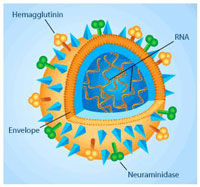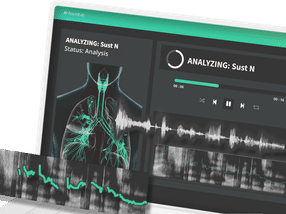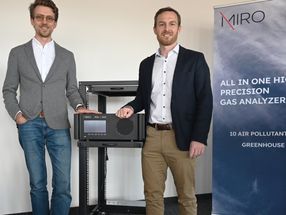Roche's AmpliChip CYP450 Test receives FDA clearance
First microarray-based diagnostic test for detection of genetic variations that can influence drug efficacy and adverse drug reactions
Roche announced that its first microarray-based test, the AmpliChip CYP450 Test, has been cleared by the US food and Drug Administration (FDA) for diagnostic use in the United States. This test, which is powered by Affymetrix microarray technology, analyses a patient's Cytochrome P450 2D6 and 2C19 genotypes from genomic DNA extracted from a blood sample. Test results will allow physicians to consider unique genetic information from patients in selecting medications and doses of medications for a wide variety of common conditions such as cardiac diseases, pain and cancer.
Two key genetic regions encoding the enzymes of the cytochrome P450 complex are the CYP2D6 and CYP2C19 genes. The multiple variations in the CYP2D6 gene can result in poor, intermediate, extensive ("normal"), or ultra-rapid metabolism of CYP2D6-dependent drugs from a variety of classes, including anti-depressants, anti-psychotics, anti-arrhythmics, beta-blockers, pain medications, anti-emetics, and some anti-cancer drugs. Variations in the CYP2C19 gene result in either normal or poor metabolism of CYP2C19-dependent drugs from a variety of classes, including anti-convulsants, proton pump inhibitors, benzodiazepines, and anti-malarials.
Poor metabolizers treated with drugs that are dependent on "normal" enzyme activity are at increased risk for excessive or prolonged levels of the drug in their blood (excessive or prolonged therapeutic effect or toxicity), while ultra-rapid metabolizers may not achieve sufficient therapeutic levels in their blood with standard dosing. In the case of pro-drugs (that is, drugs that require enzymatic action before they become the therapeutic compound in the body), the opposite phenomenon occurs. It is important to note that multiple drugs taken at the same time (concurrent medications) and many other environmental factors such as diet, gender, and overall health, can inhibit or induce Cytochrome P450 enzyme activity.
Most read news
Topics
Organizations
Other news from the department research and development

Get the analytics and lab tech industry in your inbox
By submitting this form you agree that LUMITOS AG will send you the newsletter(s) selected above by email. Your data will not be passed on to third parties. Your data will be stored and processed in accordance with our data protection regulations. LUMITOS may contact you by email for the purpose of advertising or market and opinion surveys. You can revoke your consent at any time without giving reasons to LUMITOS AG, Ernst-Augustin-Str. 2, 12489 Berlin, Germany or by e-mail at revoke@lumitos.com with effect for the future. In addition, each email contains a link to unsubscribe from the corresponding newsletter.





















































